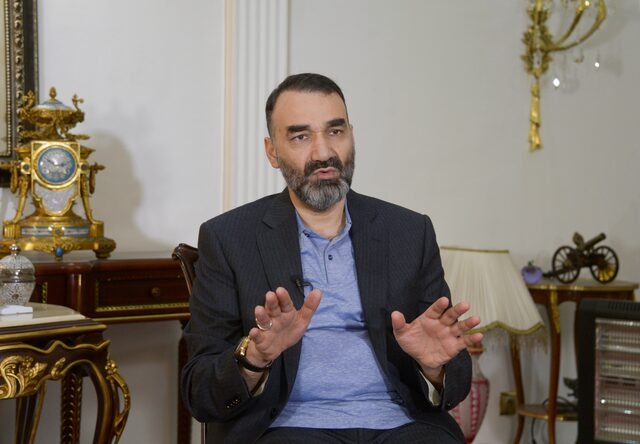RASC News Agency: Amid escalating tensions on the Indian subcontinent, prominent Afghanistanistani statesman and senior leader of Jamiat-e-Islami, Atta Mohammad Noor, has issued a forceful rebuke of India’s recent military actions against Pakistan. In a statement posted to the social platform X on Wednesday, Noor criticized New Delhi’s aggressive military posture and cautioned against what he described as a dangerous provocation with potentially catastrophic consequences. Addressing the recent missile strikes carried out by India on territories administered by Pakistan in Kashmir, Noor warned that while India may be drawing tactical inspiration from Israel’s military doctrine, it must not ignore the fundamental differences between the Gaza Strip and Pakistan. “Pakistan,” he wrote, “is not a defenseless Gaza. It is a sovereign state equipped with nuclear capabilities and a robust military apparatus. Any attempt to undermine or provoke such a nation could unleash an uncontrollable chain of events.”
Noor’s statement was not merely a warning to India but also a broader plea for rational diplomacy in a region long plagued by entrenched hostilities. As a seasoned political figure who has consistently opposed military solutions to geopolitical disputes, Noor underscored his belief that war produces only devastation decimating infrastructure, dismantling economies, and inflicting irreversible human suffering. He called on both India and Pakistan to exercise strategic restraint and resist the temptation of nationalistic brinkmanship. “Violence serves no victor,” Noor noted. “Only through dialogue, diplomacy, and mutual respect can this region avert disaster and move toward a more stable future.”
Expanding his commentary to include Pakistan’s broader foreign policy approach, Noor urged Islamabad to undertake a fundamental reassessment of its posture toward Afghanistan. He emphasized the need for Pakistan to abandon interventionist strategies that have repeatedly failed and contributed to prolonged instability. “It is time for Pakistan to rethink its role in Afghanistan and engage as a responsible regional actor rather than a destabilizing force,” he added, hinting at decades of interference by Pakistan’s security establishment in Afghanistan’s affairs. Noor’s remarks come at a particularly volatile moment, as India’s overnight aerial assaults on nine targets in Pakistan-administered Kashmir have pushed Indo-Pakistani relations to the brink of military confrontation. While New Delhi claims the strikes were directed at terrorist training camps, Islamabad has dismissed these assertions as unfounded, instead accusing India of targeting civilian infrastructure and causing significant non-combatant casualties.
According to official statements released by the Pakistani military, the attacks left at least 31 people dead and 56 others wounded. In a bold retaliatory move, Pakistan claimed to have intercepted and downed seven Indian unmanned aerial vehicles and five fighter aircraft, including three French-built Rafale jets. Pakistan’s military further reported that no Pakistani personnel were injured or killed in the exchange an assertion likely to fuel further debate over the scope and success of India’s operation. In the immediate aftermath, Pakistan’s Foreign Ministry summoned the Indian charge d’affaires in Islamabad to formally protest the strikes, warning of “serious repercussions” should such incursions continue. Prime Minister Shehbaz Sharif delivered a sharply-worded condemnation, asserting that India’s actions constitute a flagrant breach of international law and vowing that “New Delhi will be held accountable for the consequences of this reckless aggression.”
The origin of the current escalation can be traced to a deadly militant attack in the Pahalgam district of Indian-administered Kashmir, which claimed the lives of 27 individuals. India has directly accused Pakistan of orchestrating the assault an allegation Islamabad has vigorously denied, branding it as baseless and politically motivated. As the specter of open conflict looms over South Asia, analysts warn that the situation could spiral beyond control if both nations fail to de-escalate. With two nuclear-armed states standing at the precipice of war, voices such as Atta Mohammad Noor’s stand as urgent calls for restraint, responsibility, and regional sanity. Whether these calls will be heeded or drowned out by drums of war remains to be seen.






